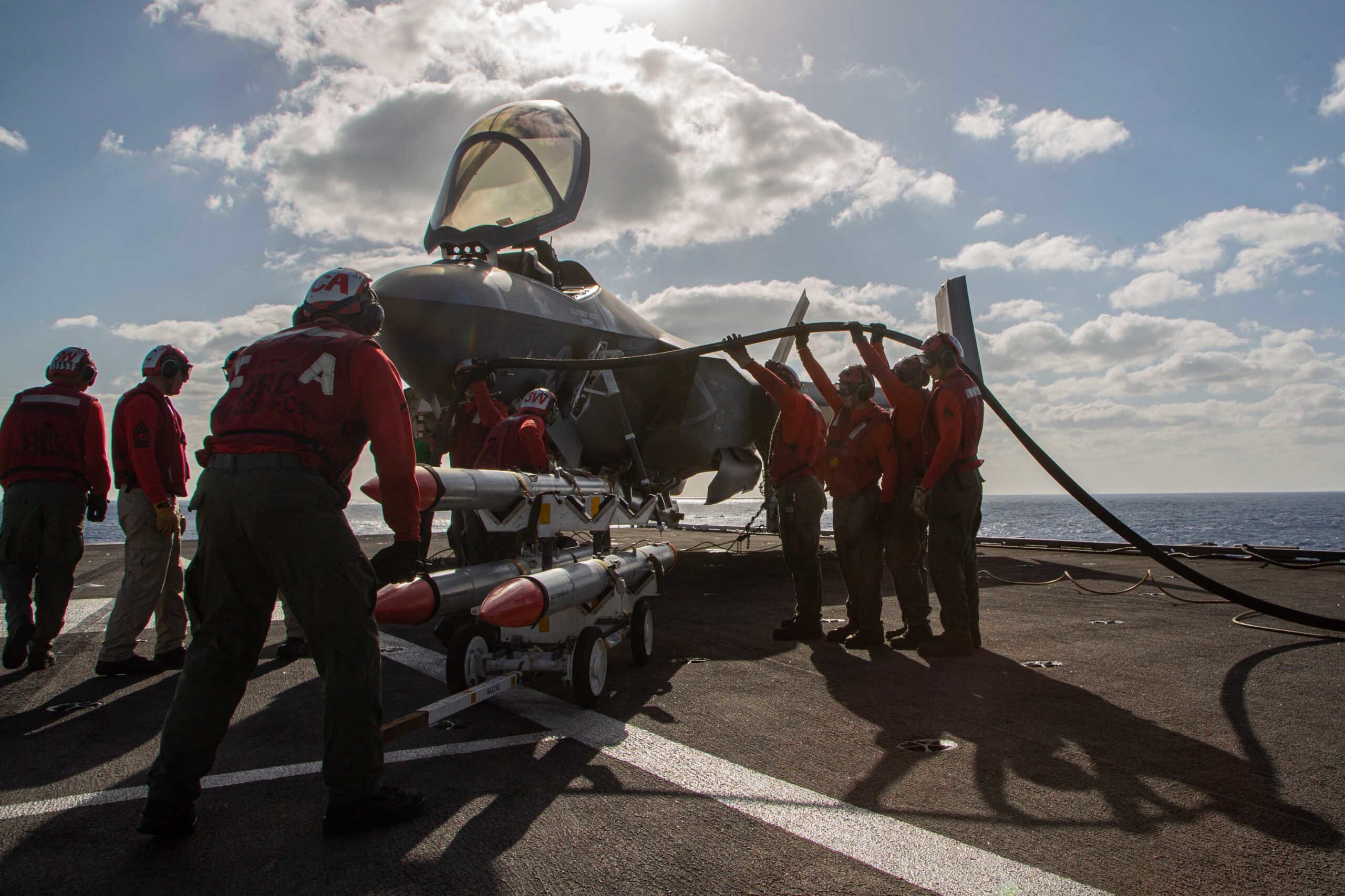SAN DIEGO – As 3rd Marine Division recently commenced Jungle Warfare Exercise 22 (JWX 22), a large-scale, joint force exercise, Marine Wing Fighter Attack Squadron (VMFA) 314 integrated the capabilities of the F-35C Lightning II. VMFA-314 supported ground operations from their position deployed onboard the Nimitz-class aircraft carrier USS Abraham Lincoln (CVN-72), displaying their ability to deliver long-range strike capabilities and close air support from an aircraft carrier.

VMFA-314, the first Marine squadron to deploy the F-35C, continued to demonstrate its proficiencies during JWX 22 by conducting simulated offensive and defensive air support, as well as air-to-ground support training missions alongside the Marines of 1st Marine Air Wing, Japanese Air Self-Defense Forces and the Abraham Lincoln Carrier Strike Group in support of Expeditionary Advance Base Operations (EABO).
“The opportunity to work alongside Navy and Japanese Air Self-Defense Forces allows us to demonstrate our forward presence and to showcase our readiness to support real world operations,” said Lt. Col. Brendan M. Walsh, VMFA-314 Commanding Officer. “Leveraging the Marine Corps’ decade of experience with the F-35B, we have spent the last two years working with the Navy to ensure the successful integration of the F-35C into the Carrier Air Wing and are now able to provide improved battlespace awareness and unmatched lethality.”
The integration of VMFA-314 and the F-35C into the Carrier Air Wing enables U.S. naval forces the ability to launch and recover fifth-generation aircraft from nearly anywhere in the world and to relocate to new strategic locations. The employment of the F-35C provides Marine ground units stealth capabilities and combat power to create the conditions for follow-on operations within key maritime terrain.
Exercises such as JWX 22 allow squadrons operating the F-35C to integrate tactics in conjunction with ground forces to help advance expeditionary capabilities such as EABO. These rehearsals of engagements will serve to reduce response times of forward-deployed units and support the continued prosperity, security and promise of a free and open, rules-based order for the U.S. and its alliances and partnerships.
With continued deployments of fifth-generation fighters onto highly mobile aircraft carriers, the F-35C is able to provide precision long-range strike capabilities to allies while also garnering valuable intelligence from areas of operation, all while operating from at-sea or shore-based austere environments.
VMFA-314 was the first Marine Corps squadron to transition to the F-35C variant of the joint strike fighter after retiring its legacy F/A-18A/C aircraft and receiving its first F-35C on Jan. 21, 2020. Now as the Marine Corps continues to develop as a modernized naval force, deploying squadrons such as VMFA-314, to key strategic maritime locations demonstrates the Marine Corps’ capability to deter adversary aggression, and if required, decisively win in conflict.
Written by Capt Charles Allen, 3rd MAW Communication Strategy and Operations Office.


I wonder how long an F-35s stealth coatings will remain effective at an austere FOB or EABO. I can’t imagine the Marines carting around a sprayer robot, paint enclosure, filtration units, and bunny suits if they’re trying to reduce their logistical tail.